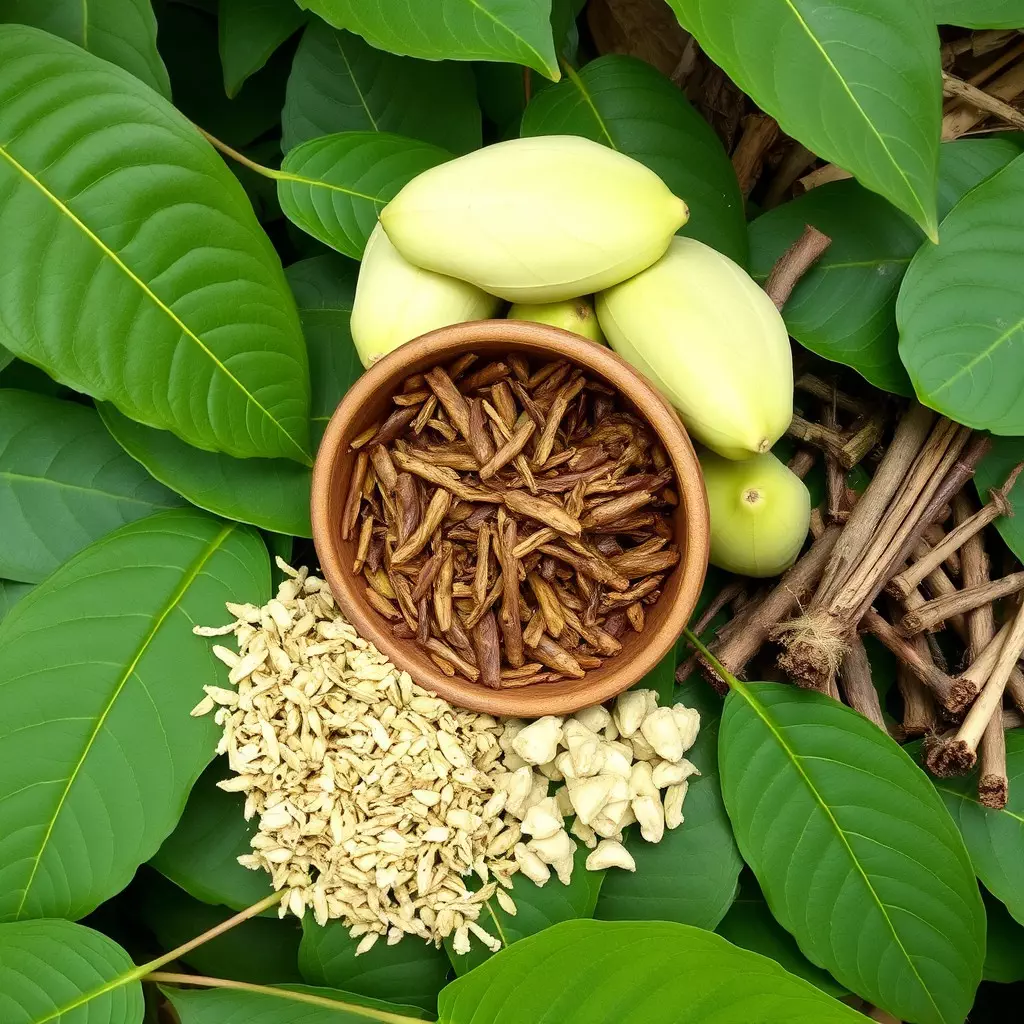Exploring the potential of kratom as a mitigation tool for opioid withdrawal symptoms has garnered significant attention, particularly in the context of finding alternative solutions for detoxification. This article delves into the multifaceted role of kratom, offering insights into its efficacy and considerations for its use during opioid withdrawal. We will examine the scientific basis for kratom’s effects, assess the advantages and drawbacks of using discount kratom as part of detoxification strategies, and provide a detailed guide on safely integrating kratom into opioid withdrawal management. Understanding the nuances of this approach is crucial for those seeking relief from withdrawal symptoms, highlighting the importance of informed decision-making in the pursuit of wellness.
- Understanding Kratom's Role in Mitigating Opioid Withdrawal Symptoms
- The Pros and Cons of Using Discount Kratom for Opioid Detoxification
- A Comprehensive Guide to Safely Incorporating Kratom into Opioid Withdrawal Management
Understanding Kratom's Role in Mitigating Opioid Withdrawal Symptoms

Kratom, a plant native to Southeast Asia, has garnered attention for its potential role in alleviating opioid withdrawal symptoms. The mitigating effects of kratom are attributed to its active components, mitragynine and 7-hydroxymitragynine, which interact with the body’s opioid receptors. These compounds can reportedly ease the distressing physical and psychological symptoms associated with opioid cessation, such as anxiety, muscle aches, insomnia, and irritability. Users who seek discount kratom often do so with the aim of finding relief from withdrawal without the high costs associated with other treatments. While scientific research is still evolving to fully understand kratom’s efficacy and safety profile in this context, anecdotal evidence and emerging studies suggest its potential as a substitute during detoxification processes. It’s important for individuals considering kratom as part of their withdrawal management plan to approach it with caution, ideally under medical supervision, due to the complexity of opioid addiction and the potential for kratom to have both positive and negative effects. Additionally, the legal status of kratom varies by region, and access to discount kratom products may depend on local regulations. As such, any use of kratom as a means to manage withdrawal symptoms should be informed by comprehensive research and professional guidance.
The Pros and Cons of Using Discount Kratom for Opioid Detoxification

Kratom, a tropical tree native to Southeast Asia, has garnered attention in the realm of opioid detoxification due to its alkaloid profile that can interact with opioid receptors. Discount Kratom, available widely both online and in stores, offers an affordable alternative for individuals seeking relief from opioid withdrawal symptoms. Proponents claim that certain strains of kratom can alleviate the discomfort associated with detoxification by mimicking opioid effects without the risk of addiction or overdose. This can be particularly beneficial for those who cannot afford more conventional treatments, making discount kratom a cost-effective solution.
However, it is imperative to approach the use of discount Kratom with caution. While it may serve as a temporary measure to mitigate symptoms such as anxiety, muscle aches, and insomnia, the efficacy and safety of kratom are still under scrutiny by regulatory bodies. The quality and purity of discount products can vary significantly, potentially leading to unpredictable effects or adverse reactions. Additionally, long-term use of kratom may carry its own set of risks, including psychological dependence. Users should exercise due diligence by sourcing from reputable vendors and consulting with healthcare professionals before incorporating discount Kratom into their opioid detoxification regimen. It is also crucial to consider that while kratom may aid in the detox process, it should not replace medical supervision or professional addiction treatment when needed.
A Comprehensive Guide to Safely Incorporating Kratom into Opioid Withdrawal Management

When managing opioid withdrawal symptoms, individuals may seek alternatives to traditional medical treatments. Kratom, a plant from Southeast Asia with opioid-like properties, has gained attention as a potential aid in the withdrawal process. However, it is crucial to approach its use with caution and informed guidance. This guide aims to provide insights into safely incorporating kratom into opioid withdrawal management.
Kratom contains alkaloids that interact with the brain’s opioid receptors, potentially offering relief from withdrawal symptoms such as anxiety, muscle aches, insomnia, and cravings. It is advisable to source high-quality kratom strains from reputable vendors like those offering discount kratom options to ensure potency and safety. The right dosage is pivotal; starting with a lower dose and gradually adjusting as needed under the supervision of a healthcare provider is essential for minimizing side effects and maximizing efficacy. Additionally, it’s important to use kratom as part of a comprehensive withdrawal management plan that includes medical monitoring, psychological support, and other holistic or pharmacological interventions tailored to the individual’s specific needs. Always prioritize professional consultation when considering the addition of kratom to any treatment regimen for opioid withdrawal symptoms.
Kratom has emerged as a subject of interest in the context of mitigating opioid withdrawal symptoms, offering a potential alternative for individuals seeking relief during detoxification. While the use of discount kratom for this purpose presents benefits such as reduced reliance on pharmaceutical interventions and potentially fewer side effects, it is imperative to approach its integration into withdrawal management with caution and informed guidance. The insights provided in this article underscore the importance of understanding both the advantages and limitations of kratom when used in this capacity. Prospective users should carefully weigh these factors and consider consulting healthcare professionals before incorporating discount kratom into their detoxification plan. With responsible use and further research, kratom may hold promise as a tool to assist individuals in navigating the challenges of opioid withdrawal.






